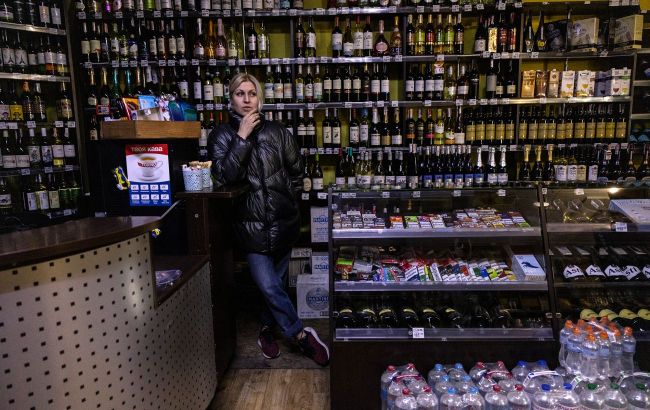Russians turn to low-quality alcohol under sanctions, Ukrainian intel says
 Illustrative photo: Belarusian wine imports to Russia have increased significantly (Getty Images)
Illustrative photo: Belarusian wine imports to Russia have increased significantly (Getty Images)
EU sanctions against Russia have cut off Russians' access to elite wines, forcing them to buy low-quality alcohol. Neighboring Belarus is coming to Russia's rescue in this matter, according to the Foreign Intelligence Service of Ukraine.
“Against the background of EU sanctions and the kremlin’s restrictions on the supply of many European wines, russians have begun to consume more low-quality wines, particularly those produced in belarus,” the intelligence service reported.
In the first half of this year, Russian retail chains sold 14 times more Belarusian wines than before. And at the beginning of 2025, Belarus even found itself in the top 10 countries in terms of sparkling wine sales to Russia.
A few days ago, public organizations in Russia appealed to the authorities with a proposal to introduce a “dry law” while the so-called “special military operation” in Ukraine continues.
They explain their initiative by saying that alcohol “weakens the will, reduces the discipline and working capacity of citizens, as well as the combat capability of the army.”
After Russia's full-scale invasion of Ukraine, a number of well-known companies and firms left their representative offices in Russia, and alcohol producers were no exception.
For example, Swedish vodka producer Absolut left the Russian market, as did Pernod Ricard, which supplied premium alcohol to Russia.
Pernod Ricard owns international brands such as Martell cognac and Beefeater gin.
However, international alcohol brands cannot control their supplies to Russia, despite sanctions. The Kremlin has allowed the smuggling of elite alcohol under a “parallel import” scheme.
For example, cognac producer Remy has suggested that its products were imported into Russia through “parallel imports,” i.e., from countries and organizations not subject to sanctions.

